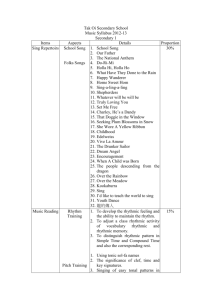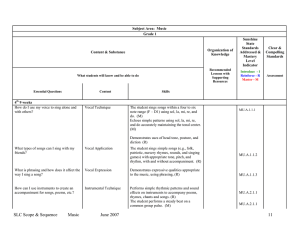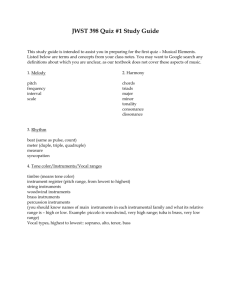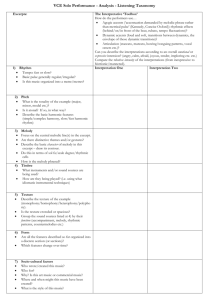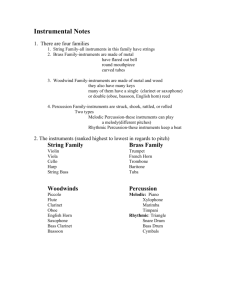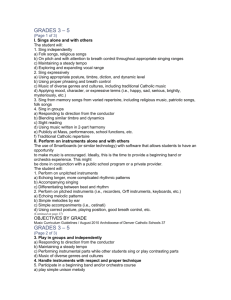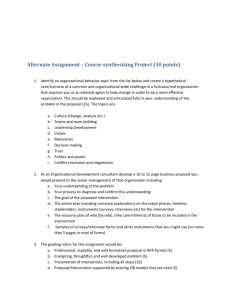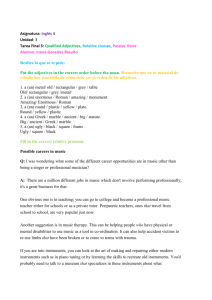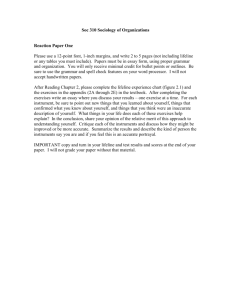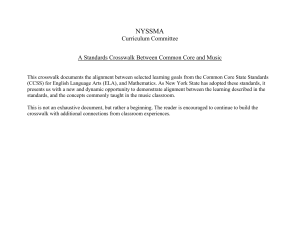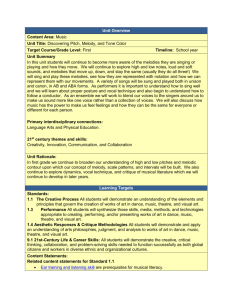Music_SYL_S1_13-14 - Tak Oi Secondary School
advertisement
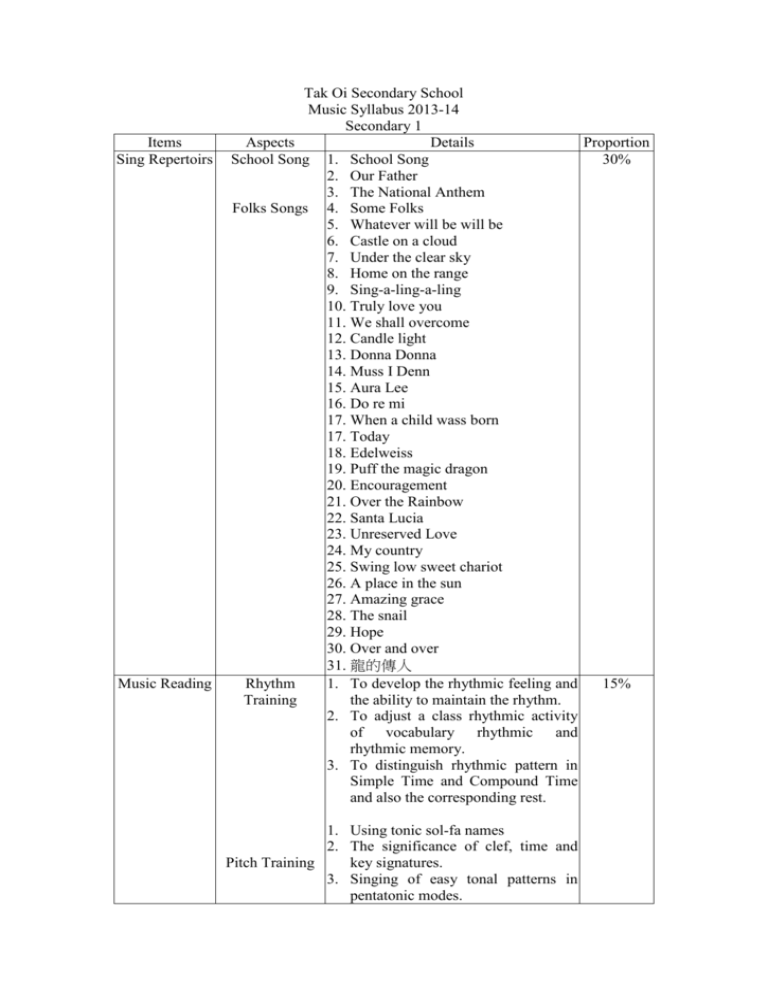
Items Sing Repertoirs Music Reading Tak Oi Secondary School Music Syllabus 2013-14 Secondary 1 Aspects Details Proportion School Song 1. School Song 30% 2. Our Father 3. The National Anthem Folks Songs 4. Some Folks 5. Whatever will be will be 6. Castle on a cloud 7. Under the clear sky 8. Home on the range 9. Sing-a-ling-a-ling 10. Truly love you 11. We shall overcome 12. Candle light 13. Donna Donna 14. Muss I Denn 15. Aura Lee 16. Do re mi 17. When a child wass born 17. Today 18. Edelweiss 19. Puff the magic dragon 20. Encouragement 21. Over the Rainbow 22. Santa Lucia 23. Unreserved Love 24. My country 25. Swing low sweet chariot 26. A place in the sun 27. Amazing grace 28. The snail 29. Hope 30. Over and over 31. 龍的傳人 Rhythm 1. To develop the rhythmic feeling and 15% Training the ability to maintain the rhythm. 2. To adjust a class rhythmic activity of vocabulary rhythmic and rhythmic memory. 3. To distinguish rhythmic pattern in Simple Time and Compound Time and also the corresponding rest. 1. Using tonic sol-fa names 2. The significance of clef, time and Pitch Training key signatures. 3. Singing of easy tonal patterns in pentatonic modes. Music in the Western tradition and Listening Sight Reading 1. To develop pitch awareness and discrimination. 2. The significance of clef, time and key signatures. 3. The structure of major scale. 4. Simple sight-singing exercises related to known songs. 5. Sight-sing exercises include easy stepwise exercises and leaps within the tonic chord in G, C, F, D major. Instruments 1. General introduction to the main orchestral families and their instruments 2. Exploring and identifying the tone color of the instruments of the orchestra. 25% Music in the Chinese tradition and listening Recorder Creative Programme Music 1. Recognition of simple themes. 2. Remember musical ideas. 3. Awareness of the structure of music: phrase and sentence, simple binary and ternary forms. Vocal Music 1. Classification of voices: Soprano, Alto, Tenor, Bass. 2. Examples of vocal music: Solo Singing, Ensemble, Choir arrangement, Combination of instrumental and choral works. Instrumental Music 1. 2. 3. 4. Wind instruments Bowed string instruments Plucked string instruments Percussion Playing simple Through which students can learn to melody, a play, to read and write music, to use counter melody chords and to compose tunes. or fragments of the tune at appropriate Creative Sound Project 20% 10%
